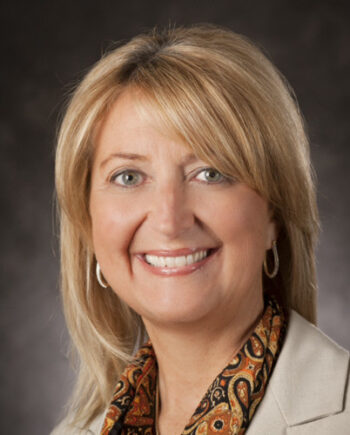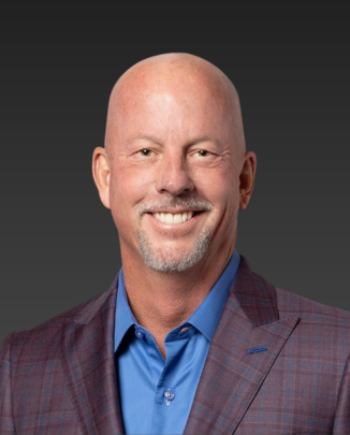
Patients need all the help they can get, whether it’s emotional, physical, or financial support. This is especially true for chronically-ill patients as may be taking multiple medications daily to manage their disease. The care journey can be long and challenging, significantly impacting patients and families financially.
In 2019, the Nasdaq website reported that about 530,000 families turn to bankruptcy each year due to medical bills they cannot pay. The situation was made even worse by the COVID pandemic which caused thousands of Americans to lose their jobs and subsequently also their health insurance. For patients with chronic conditions, this means high out-of-pocket costs for their care and treatment.
With other more urgent needs demanding patients’ finances, more patients are likely to skip or delay medical care. This leads to poorer and longer treatment outcomes and higher risks of morbidity and mortality.
While the situation may seem dismal, there’s help if people know where to look for it.
Cardinal Health’s Sonexus™ Access and Patient Support is a patient services hub that works on behalf of pharmaceutical manufacturers to provide tailored solutions based on the needs of their patients and their treatment journey.
Tara Herington, Vice President of Sonexus explained how her company provides assistance to patients.
“At Sonexus™, we have experience in delivering reimbursement support and clinical education to help patients get started on their therapy and maintain their therapy. We provide assistance to more than 250,000 patients every year, and we also have technology that helps patients achieve better outcomes,“ Tara said.
In addition to leveraging data and technology, the Sonexus™ team works with its biopharma clients to drive an improved patient experience. As an example, Sonexus works on behalf of its biopharma customers to provide clinical nurse educator programs, where patients are connected to registered nurses who can answer questions about treatment, provide wellness coaching and reminders about taking medicine, and address concerns related to therapy.
They also offer support programs for patients who cannot pay for their medication.
Tara shared, “We work with our biopharma clients to manage the free drug programs for patients who cannot afford their medications. These programs are for patients who are uninsured or may be underinsured. We have what’s called a noncommercial specialty pharmacy, and we dispense as many as four thousand doses of free medication every day for patients who qualify. Although many patients are not aware these programs exist, most manufacturers of specialty medications do have these free drug programs.”
Supporting 250,000 patients every year presents its own challenges, but Tara says her team is committed to delivering the assistance that patients need throughout their treatment journey.
“One of the things that we do to improve outcomes is to capture HIPAA-compliant data related to patients and their treatment journeys. We use that data to provide our biopharma clients with valuable insights that help them to provide a better experience for patients.
Sonexus has also built a cloud-based technology platform that enables them to automate tasks such as prior authorizations and benefits investigations, helping to reduce the time it takes patients to get on therapy.“Patients who are managing chronic conditions like cancer or rheumatoid arthritis often have to wait several weeks to start treatment while prior authorizations and benefits investigations are processed. Our technology solution can reduce that wait time from days or weeks to just a few hours,” said Tara.
Another important role of Sonexus™ is help patients and families get connected to the resources they need. Unfortunately, many patients don’t know that medication assistance programs sponsored by drug manufacturers are available to them. Tara said that “fewer than one in five patients are aware of these programs.” Even many healthcare providers are not aware of the different manufacturers’ copay assistance and free drug programs.
With so many patients suffering due to the impact of COVID, it is critical to get the word out that there are resources that can help in their treatment process.
Both healthcare providers and biopharma companies play a central role in connecting patients to available support programs. Tara shares that health insurance companies could also take a larger role in bringing awareness by utilizing their vast network of partners and members. In addition, tools like NeedyMeds.org and MedicineAssistanceTool.org are excellent resources for patients if they want to find out whether there is a patient assistance program for their prescription medicine.
——
Equipped with this additional information, it is now part of our duty in the healthcare industry to share what we have learned and get patients to a much better level of care.
For more information on what a patient hub does, you can listen to my full interview with Tara here: https://outcomesrocket.health/cardinalhealth/2021/01/
According to the 2020 Centers for Disease Control and Prevention report, roughly 34.2 million Americans have diabetes,...
Read MoreAs a farmer, Rod was used to long days. He worked 18 hours a day, 7 days...
Read MoreWith investors receiving hundreds of pitch decks every year, how do you create a compelling presentation that...
Read More
Brittany Busse Co-Founder, President, and Chief Medical Officer at
ViTelHealth


Stephen Thorne Founder and CEO at
Pacific Dental Services

Keith Carlson Nurse Career Coach